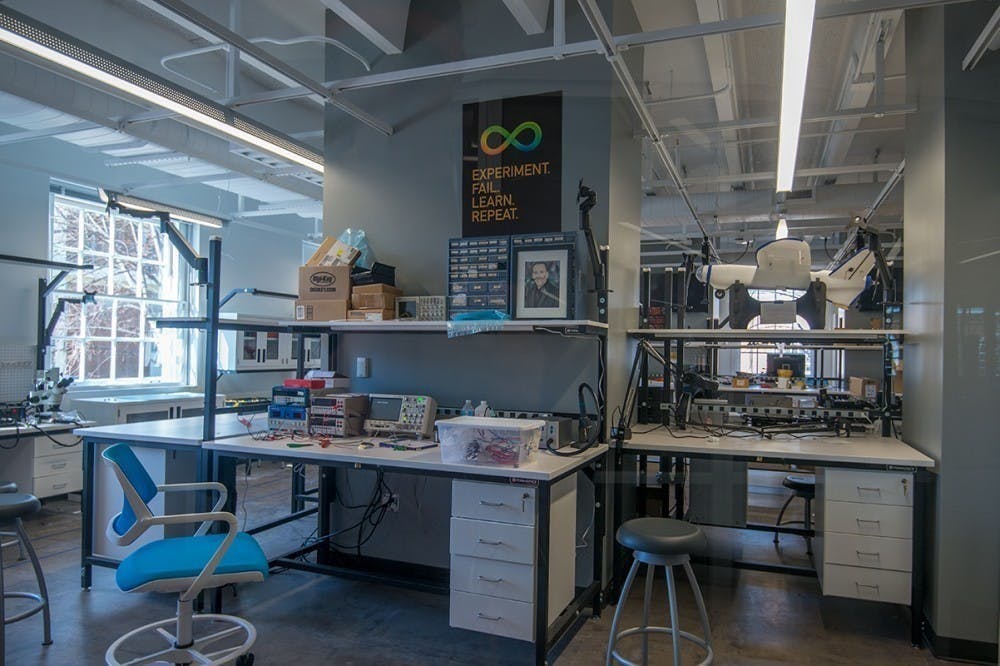In the midst of the COVID-19 pandemic, professors have struggled to generate the same amount of interest in scientific topics through online activities. In an effort to personalize the learning experience, professors have diversified their teaching styles in an effort to best engage students despite the challenges of online learning.
Educational Psychology Prof. Jessica Whittaker said that in a normal setting, the most common methods of scientific teaching appear in the form of data collection and analysis, models, opportunities for students to ask questions and observations and demonstrations that elicit students’ previous knowledge.
According to Science Education Prof. Frackson Mumba, one of the most important parts of learning science is being able to experience it.
“You don’t expect somebody to learn how to ride a bicycle just by talking to them,” Mumba said. “They have to do it … you have to engage them in doing those things. As they do it, they gain the confidence, [and] not only in that — they also learn how the bicycle moves.”
Similarly, Science Education Prof. Robert Tai emphasizes the importance of allowing students to physically touch something and see it in person as part of their learning process. For example, in teaching Newton’s Laws of Motion, Tai builds a hover disk that is big enough for three students to actually sit on.
“It is literally like this little hovercraft — a miniature hovercraft that … can zip around the room and illustrate in real life what is happening,” Tai said.
In regards to learning, Mumba explains that there are three domains when it comes to learning — the cognitive, affective and psychomotor. The cognitive domain has to do with the content and ideas, the affective domain has to do with interest and the psychomotor domain has to do with the skills used to manipulate equipment in the lab. The pandemic has affected two of these three domains — the psychomotor and affective domains.
In online stimulations, much of the work is being done for students. For example, instead of being asked to draw a graph by hand, students are using Excel, which means that the software will end up doing all of the work. This leads students to rely on technology to complete their labs, and they end up missing the practical skills that they should have gained had the labs been in person.
“Online labs should not substitute the physical lab — they should just supplement the physical labs,” Mumba said.
However, the loss of this in-person equipment manipulation doesn’t just impact one aspect of students’ learning experiences. Mumba explains that some students enjoy the physical interactions they have with lab equipment, which translates into an interest for the subject and science.
“[If] there is no opportunity to practice science in the lab, they will start losing interest,” Mumba said.
Over the last months, teachers have worked tirelessly to find ways to overcome the online barriers of instruction. Tai explains the importance of an application called Exoplanet, which he utilizes to introduce the solar system to his students. In addition to allowing students to see the relative sizes, ordering and characteristics of the planets, the app has the ability to zoom out to the Milky Way, the asteroid belt, solar system and galaxy, placing all of them in proportion to each other. He stresses that it would be impossible to demonstrate the vastness of outer space without the proper technology.
Not only does he have to figure out how to share his iPhone to his students online, he must also allow in-person students to view the screen synchronously, which took him five weeks to figure out. Without this app, his students would likely not have any idea of the relative sizes between the planets, leading to less interest in the subject overall.
As a result of the COVID-19 pandemic, issues with the current education system have been brought to light.
“The average amount of time spent on science instruction is a mere 19 minutes per day,” Whittaker said. “When teachers do engage in science activities, the focus is often on displays of science materials or art projects, with teachers rarely encouraging inquiry.”
Mumba said that one development schools should be working toward is improving scientific literacy for everyone. He mentioned a project by the American Association for the Advancement of Science known as Project 2061, which aims to bring scientific literacy to every American citizen by 2061.
“If we are going to achieve [science literacy by 2061], that means we need to do more about science,” Mumba said. “It shouldn't be optional in school. It should be something that we should be teaching and allocating more time in schools.”
Science subjects — biology, chemistry and physics, for example — are typically split up and students are often allowed to pick and choose the subjects they learn. Mumba argues that science teaches skills just as important as reading comprehension and math and that students should be required to get the full experience from all three branches of science before they enter University.
“If [all branches of science are] not taught, or not taught much, then we're not going to achieve the scientific returns by 2061,” Mumba said.







